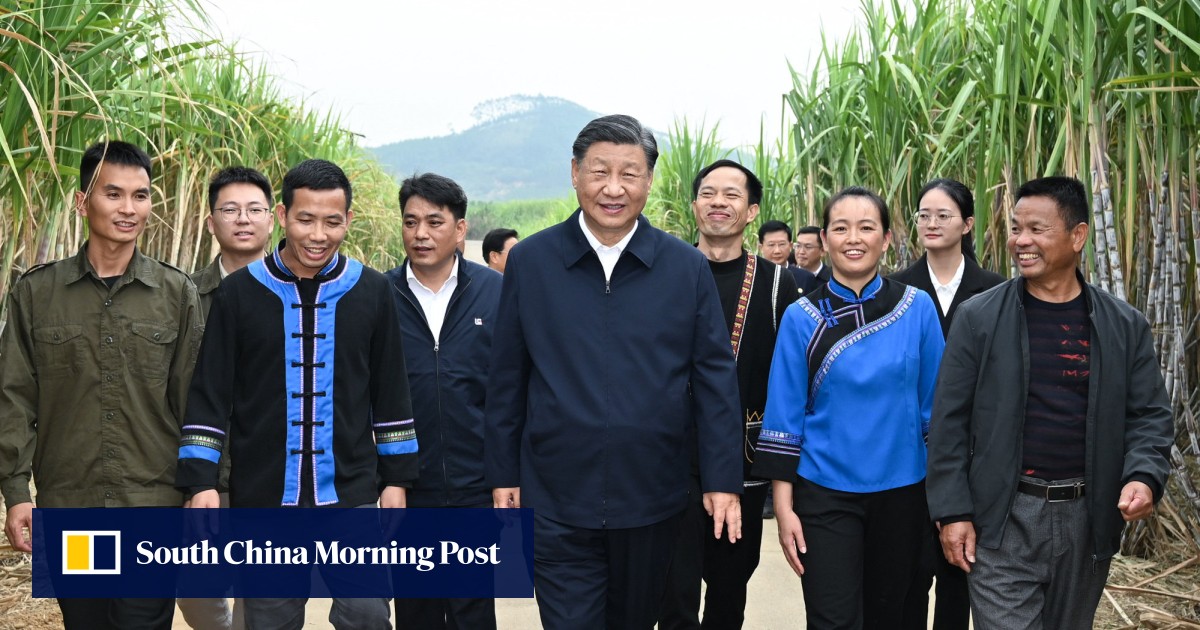However, while cadres are studying and imitating Xi’s ideas on how to connect with the masses, which have been dubbed the “four downs” in a reference to going “down to the grass roots”, some question the effectiveness of the methods and the education campaign.
Xi Jinping says Communist Party control too weak in rural China: new book
Xi Jinping says Communist Party control too weak in rural China: new book
A video of Anhui party boss Han taking a swig of Hefei tap water attracted plenty of “thumbs up” reactions on social media. But the 47,000 comments posted below the clip included many who appeared confused, with some asking how Han could check the quality of the water by drinking it.
Alfred Wu, associate professor at the National University of Singapore’s Lee Kuan Yew School of Public Policy, also questioned Han’s actions, noting that testing water quality was not part of the professional skills or job duties of a provincial party secretary.
An official who took part in the education campaign in Fujian province and asked to remain anonymous said the latest round of training, which began in September, focused on officials at the prefecture and county level with a closer working relationship with local communities.
When asked about the education campaign, responses from junior officials ranged from supportive to dismissive.
“I do believe the ‘down to grass roots level’ campaign is effective in solving people’s problems,” said a recent university graduate who is now a civil servant in the northern province of Jilin.
“I took part in a campaign to promote production safety for businesses such as the use of firefighting equipment,” said the civil servant, who also asked to remain anonymous. “I think our visits did help enhance people’s knowledge in this regard.”
Others rejected the visits to local communities as publicity stunts or political shows.
One local civil servant in the southwestern province of Sichuan said, “What’s the point of conducting such investigations?”
“We were all told about them in advance so everything was well prepared ahead of the visits,” she said.
“It only adds to the burden of us grass-roots civil servants because we have to prepare all the documents and materials for these investigations by the senior cadres.”
Wu of the National University of Singapore said there might be a gap between what top leaders in Beijing envisioned for the campaign and the reality on the ground.
“It can be a beautiful vision when the campaign is launched but cadres in the grass roots level may see it differently,” Wu said.
“The Chinese [governance] system is very top-down and sometimes local cadres only want to appease their bosses and check the box, independent of whether the problems are solved,” he added.
China’s petition office promises to tackle ‘backlog of complaints’
China’s petition office promises to tackle ‘backlog of complaints’
Li Chuncheng, a professor at the School of International Relations and Public Affairs of Fudan University in Shanghai, said party elites could better address problems such as formalism by having the disciplinary watchdog supervise grass-roots inspections and visits by officials.
“There are two inspection mechanisms that can be used to regulate formalism,” Li said.
“The first is to incorporate formalism into the scope of inspection work of the disciplinary inspection commission. The second one is to set up a dialogue channel between policymakers [at the top] and the cadres responsible for implementation [at the lower level].
“But the disciplinary commission now only oversees disciplinary matters and there is no dialogue mechanism in the current bureaucracy.”
Wu said it would be hard to assess how effective the campaign had been without independent studies or public polls.
“I think Xi wants to use the campaign as a tool to increase his prestige and popularity among the cadres and the people, but it’s hard for us to verify if Xi’s goal is achieved with the lack of poll results in China,” Wu said.







